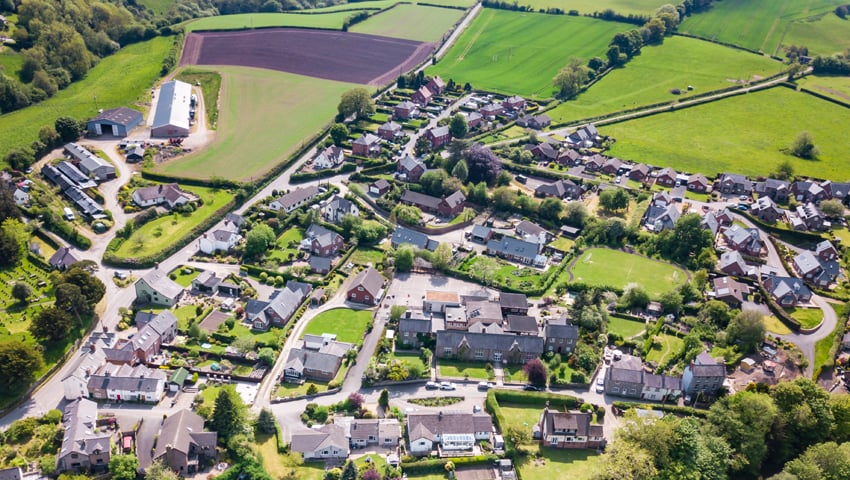Nimbyism is holding rural communities across England back, according to a poll, with just 19% of respondents believing those who object to development have a positive impact on the countryside.
A Country Land and Business Association (CLA) and Survation poll of more than 1,000 people living in rural areas has found:
- A lack of affordable rural housing is the most important issue facing rural communities, beating even the cost of living. Nearly 60% of respondents ranked it among their top two most pressing issues, with the higher cost of living compared to urban areas coming second and the lack of rural jobs third
- Less than a fifth said Nimbys had a positive impact, with 46% saying they had a negative impact and 23% neither positive or negative
- A majority (53%) said rural areas need to build more homes to provide affordable housing, versus 36% against
- More than half (55%) also support additional homes being built in their own community, with 35% not in favour
Country Land and Business Association President Victoria Vyvyan said, “Rural communities up and down the country are crying out for affordable housing, as this poll makes clear. Nobody wants to concrete over the countryside, least of all us, but for decades governments of all colours have treated it as a museum, risking the sustainability of communities and failing to generate the conditions necessary for growth.
“Villages cannot be dormitories for wealthy commuters, nor can they be the preserve of the elderly. A small number of homes must be built in a large number of villages to provide housing for young people and families, to provide workers for local businesses and keep shops, schools and other facilities open.
“Central government and local authorities alike need to start having some ambition for the rural economy, and that starts with saying the needs of the whole rural economy are more important than the desires of small groups of campaigners refusing to accept the need for change.”
How shortages can be addressed
The poll comes as the Country Land and Business Association, which represents nearly 27,000 farmers, landowners and rural businesses across England and Wales, publishes a blueprint setting out how the government can help unlock the full potential of the rural economy.
One of the six documents, or missions, focuses on housing and makes a series of recommendations to help solve shortages, including:
- Introduce a ‘planning passport’ for Rural Exception Sites to increase delivery of affordable housing by splitting the planning process for these sites into two stages. The first stage would provide the applicant with planning permission in principle, giving them certainty in their investment. Only if the scheme gains this permission will further expenditure be required, thus avoiding unnecessary time and expenditure on any applications that are likely to fail
- Make it easier to convert agricultural buildings into homes in National Parks and National Landscapes, by expanding Class Q permitted development rights
- Amend the definition of affordable housing for rent in the National Planning Policy Framework (NPPF) to allow private landowners and community groups to develop affordable housing without becoming registered providers
Urban-rural divide
Vyvyan added, “Rural communities face a number of distinct challenges compared to their urban counterparts: an older population, proportionally fewer affordable homes, pressure on house prices from second home ownership, and a larger gap between house prices and wages.
“These challenges are largely the result of a planning system that is simply not designed to unlock their potential. The system continues to favour large-scale developments that often fundamentally and negatively alter the fabric of the local community. Likewise, this same system ignores the advantages of small-scale developments that would improve the viability of villages.
“This systemic failure of government planning policy is steadily killing rural communities.”
